Imagine you want to count how many non-ASCII chars a given char[] contains. Imagine, the performance really matters, so we can skip our favorite slogan.
The simplest way is obviously
int simpleCount() {
int result = 0;
for (int i = 0; i < string.length; i++) {
result += string[i] >= 128 ? 1 : 0;
}
return result;
}
Then you think that many inputs are pure ASCII and that it could be a good idea to deal with them separately. For simplicity assume you write just this
private int skip(int i) {
for (; i < string.length; i++) {
if (string[i] >= 128) break;
}
return i;
}
Such a trivial method could be useful for more complicated processing and here it can't do no harm, right? So let's continue with
int smartCount() {
int result = 0;
for (int i = skip(0); i < string.length; i++) {
result += string[i] >= 128 ? 1 : 0;
}
return result;
}
It's the same as simpleCount. I'm calling it "smart" as the actual work to be done is more complicated, so skipping over ASCII quickly makes sense. If there's no or a very short ASCII prefix, it can costs a few cycles more, but that's all, right?
Maybe you want to rewrite it like this, it's the same, just possibly more reusable, right?
int smarterCount() {
return finish(skip(0));
}
int finish(int i) {
int result = 0;
for (; i < string.length; i++) {
result += string[i] >= 128 ? 1 : 0;
}
return result;
}
And then you ran a benchmark on some very long random string and get this
 The parameters determine the ASCII to non-ASCII ratio and the average length of a non-ASCII sequence, but as you can see they don't matter. Trying different seeds and whatever doesn't matter. The benchmark uses caliper, so the usual gotchas don't apply. The results are fairly repeatable, the tiny black bars at the end denote the minimum and maximum times.
The parameters determine the ASCII to non-ASCII ratio and the average length of a non-ASCII sequence, but as you can see they don't matter. Trying different seeds and whatever doesn't matter. The benchmark uses caliper, so the usual gotchas don't apply. The results are fairly repeatable, the tiny black bars at the end denote the minimum and maximum times.
Does anybody have an idea what's going on here? Can anybody reproduce it?
